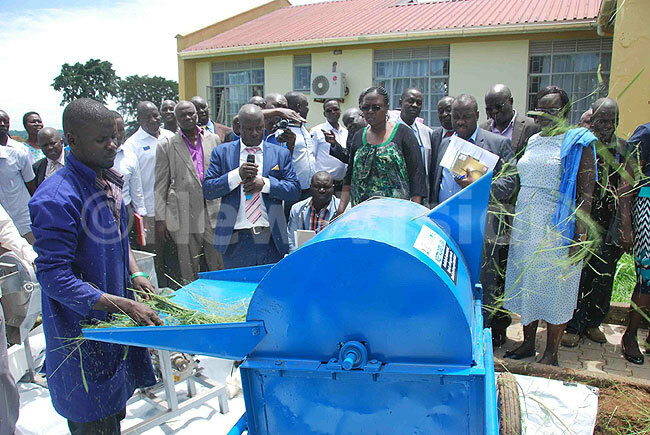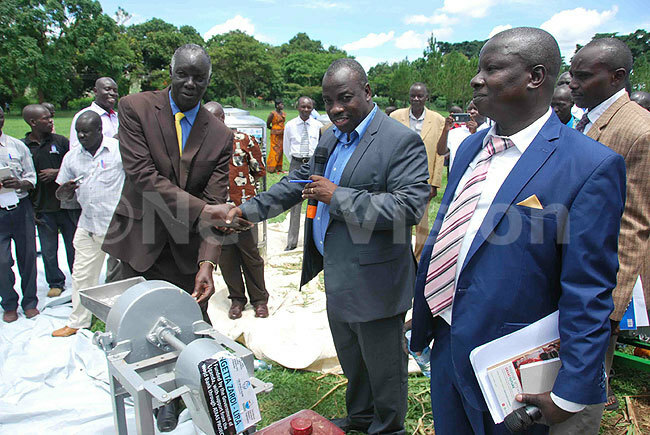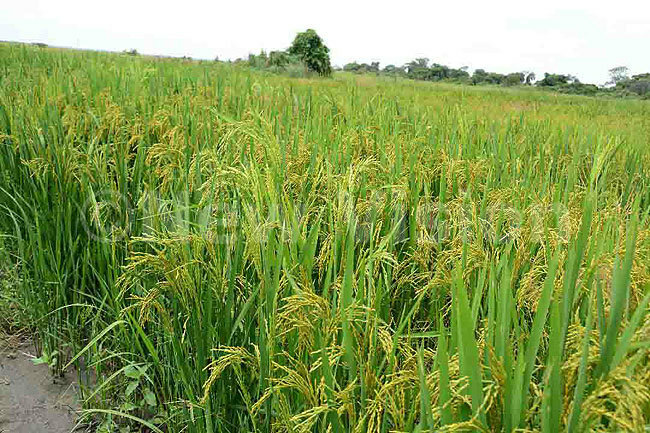IFAD, World Bank offer sh31b for rice production
“The demand for rice is high because there is ready market although farmers are producing in small quantity."
PIC: Dr Agnes Apea (left) participating in cleaning rice harvested on her farm at Namesale in Amolatar district. (Credit: Francis Emorut)
AGRICULTURE | FUNDING
Despite inadequate budget in agriculture sector, the agriculture ministry, through development partners, is engaged in efforts to provide inputs and transport for agriculture extension staffs.
The International Fund for Agricultural Development (IFAD) and the World Bank have offered sh31b to procure transport equipment for agricultural extension staff, training and provision of inputs.
"It is a new project (cluster development project) that will focus on rice production and provision of agriculture inputs," said Stephen Ojangole, the co-ordinator of Agricultural Technology Agribusiness and Advisory Service (ATAAS) project.
Ojangole also heads the new project.
Sh21b donated by IFAD will be used to procure 80 vehicles and as many as 600 motorcycles to ease mobility while World Bank funds are for training and inputs.
Atleast 42 selected districts across the country will benefit from the project.
Ojangole was speaking at the handover of post-harvest handling equipment at Ngetta Zonal Agriculture Research and Development (ZARDI) in Lira district.
In the financial 2017/2018, the agriculture sector was allocated sh863b in the national budget.
The National Agricultural Advisory Services (NAADs) had a separate allocation of sh310.2b - which was mainly going to the Operation Wealth Creation.

A rice thresher being tested at Ngetta ZARDI in Lira. (Credit: Patrick Okino)

Dr Rwamigisa hands over one of the equipment to the RDC of Amolatar. (Credit: Patrick Okino)

A rice garden in Amolatar
Ojangole said a farmer takes up new technology fast because of the good yield. "It should be the testimony of a farmer about the technology."
"As a ministry, we want to transform the sector, but the national budget keeps on coming down yearly yet the demand for resources among farmers is very high," said Dr Patience B. Rwamigisa, commissioner agricultural extension services.
"We want the local leaders to help us push this because 2.9% of the budget for agriculture doesn't transform the sector."
LC5 chairpersons, resident district commissioners, production and agricultural officers in Lango and Acholi sub-regions were advised to mobilise people to embrace the new project, which will kick off soon.
The equipment handed over by Dr Rwamigisa include metallic silo, pic bag, processing machinery, rice thresher, forage shopper and grinding mill.
Reduction of post-harvest losses, value addition, raise household income and labor saving are among the benefits to farmers.
Dr Agnes Apea, a rice grower in Amolatar district, said there is high demand for rice locally and internationally.
"The demand for rice is high because there is ready market although farmers are producing in small quantity," she said.
Improving household income and investing in education, health and housing are some of the positives.
Dr Laban Turyagenda, the director of Ngetta ZARDI, urged the agriculture ministry to provide 16 new vehicles to the districts they are operating in out of the 80 trucks due to be procured.